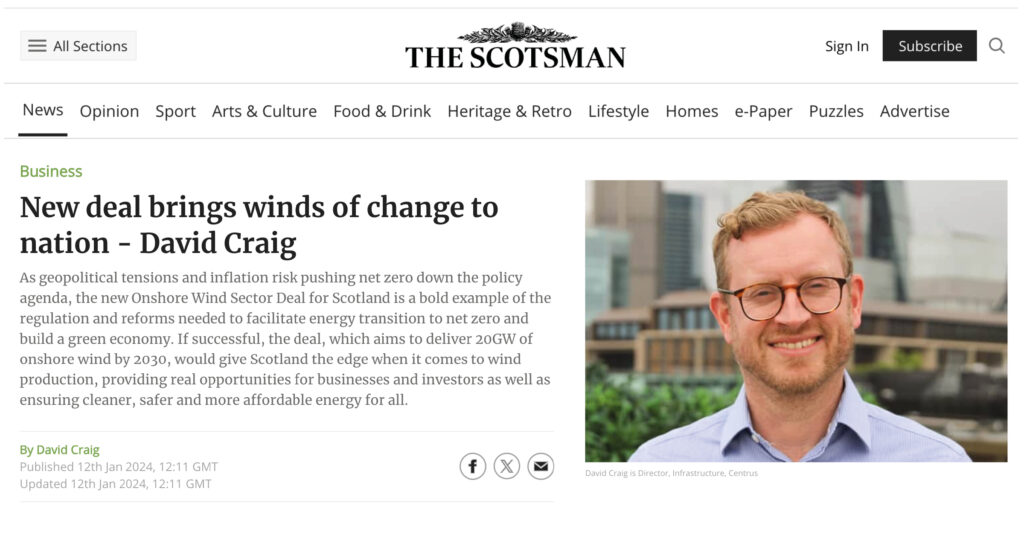Market update
- February CPI of 3.4% was lower than the expected 3.5% and interest rate projections fell.
- Service costs and wage inflation were both 6.1% and remain sticky, stubbornly holding up CPI for now.
- Goods inflation is down to 1.1% and with the energy price cap set to fall over 12% in April, expectations are for CPI to fall below 2% in the second quarter.
- The swap curve is down 20 to 25 bps from a month ago, with most of the fall occurring after the CPI release and dovish tone from the Bank of England’s 8 ‘hold’ – 1 ‘cut’ vote, with two key members no longer voting for a rate rise.
- House prices continue to fall in real terms, but with rental growth of 9% YoY in February (the largest increase since records began in 2015), falling interest rate projections and a resilient jobs market, a sense of relative strength appears to be returning in the housing market.
Implications for clients
- The SONIA curve remains flat, now at 3.7% from 6 years through to 30, meaning clients can hedge over a tenor that suits their loan portfolio.
- Interest rate projections and swap rates are falling but are attractive at current levels. Waiting for further falls back to the December 2023 lows, or to new lows, is a gamble. Steady hedging over time and maintaining the right hedging ratio to mitigate interest risk is the objective of a hedging strategy, and we think now presents a good opportunity to lock in relatively attractive rates.
- High investor demand and very low spreads creates opportunity for long term covenant light funding from the DCM market and activity continues to pick up in this space.
Recent client activity
- Banking transactions and funding mix: As we approach year-end, numerous banking transactions are nearing completion, featuring a blend of Revolving Credit Facilities (RCF) and medium-term funding. The banking market continues to be supportive of the sector and clients are taking advantage of attractive deals from a select few banks offering 10-year funding and above.
- Strategic asset management: We’re actively engaged in and advising on strategic asset disposals and acquisition strategies, highlighting the sophisticated approaches housing associations (HAs) are adopting to unlock capacity and drive growth.
- Focus on hedging strategy and covenant changes: Hedging strategy, covenant changes, and the strategic impact of combining business plans remain areas of focus for clients as they navigate evolving market conditions and optimise their financial positions.
- Active bond market: Several new bond issues and retained bond sales are currently active or recently completed, with HAs seeking to spread maturities through medium and long-term notes with tight pricing achieved.
To learn more about our work in the affordable housing sector, click here.
For more information, please contact Paul Stevens or John Tattersall.


















